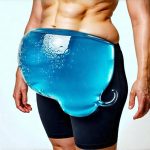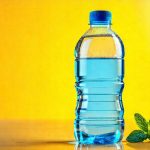Staying adequately hydrated is often viewed simply as quenching thirst, but its impact extends far beyond that – deeply influencing our digestive health. Many people underestimate just how crucial water is for optimal digestion, from breaking down food to absorbing nutrients and eliminating waste. Dehydration can significantly disrupt these processes, leading to discomfort like constipation, bloating, and even more serious issues over time. Understanding the connection between hydration and a healthy gut is key to overall well-being, as it’s not just about how much water we drink, but also when and what kind. This article will delve into the intricate relationship between these two vital aspects of health, offering practical advice for maintaining both.
Proper digestion relies on a complex interplay of enzymes, muscles, and fluids. Water acts as a solvent, helping to dissolve nutrients so they can be absorbed by the body. It also lubricates the digestive tract, enabling smoother passage of food. When dehydrated, the body prioritizes essential functions, potentially slowing down digestion to conserve water, leading to a build-up and subsequent discomfort. Beyond this, adequate hydration supports the gut microbiome – those trillions of bacteria vital for breaking down food and maintaining overall health.
The Mechanics of Digestion & Hydration’s Role
Digestion begins even before we take our first bite, with thoughts and anticipation stimulating saliva production. Saliva isn’t just for tasting; it contains enzymes that start breaking down carbohydrates. Water is a key component of saliva, initiating the digestive process right in the mouth. As food moves to the stomach, water continues to play a vital role in dissolving nutrients and aiding enzymatic action. The small intestine is where most nutrient absorption occurs, and again, water is essential for this process. Without sufficient hydration, the absorptive capacity diminishes, potentially leading to deficiencies even with a balanced diet.
The large intestine reabsorbs water from undigested food, forming stool. If you are dehydrated, your body will try to conserve water here, drawing it from the stool, resulting in hard, difficult-to-pass feces – commonly known as constipation. This can lead to bloating, discomfort, and even impact the health of your gut microbiome. Maintaining consistent hydration ensures a smoother process throughout the entire digestive system, promoting regularity and optimal nutrient absorption. It’s not just about avoiding unpleasant symptoms, it’s about maximizing the benefits you receive from the food you eat.
Recognizing Dehydration & Optimizing Fluid Intake
Often, we mistake thirst for hunger, or simply ignore mild dehydration cues. Symptoms can be subtle – fatigue, headache, dry mouth, dark urine, and decreased urination are all indicators that your body needs more fluid. However, relying solely on thirst isn’t always effective; by the time you feel thirsty, you’re already mildly dehydrated. Proactive hydration is much more beneficial. Aim for a consistent intake throughout the day, rather than trying to “catch up” when you finally notice symptoms.
Beyond just water, consider incorporating hydrating foods like fruits and vegetables (watermelon, cucumber, spinach) into your diet. These contribute to your overall fluid intake while also providing essential vitamins and minerals. Electrolytes – sodium, potassium, magnesium – are lost through sweat and play a crucial role in maintaining fluid balance. Replenishing these electrolytes, especially during or after physical activity, can further support hydration and digestive function. Natural sources include coconut water, bananas, and leafy greens.
Fiber’s Synergistic Effect with Hydration
Fiber and water work hand-in-hand for optimal digestion. Dietary fiber adds bulk to stool, promoting regularity, but without adequate water intake, fiber can actually exacerbate constipation. Think of it like trying to push a rope through a narrow space – it needs lubrication to move easily. Water softens the fiber, making it easier to pass through the digestive tract. Aim for a gradual increase in fiber intake alongside increased water consumption to avoid bloating or discomfort.
Different types of fiber require different amounts of water. Soluble fiber (found in oats, beans, apples) absorbs water and forms a gel-like substance, slowing down digestion and promoting satiety. Insoluble fiber (found in whole grains, vegetables) adds bulk and speeds up the digestive process. A balanced intake of both soluble and insoluble fiber, coupled with sufficient hydration, is ideal for maintaining a healthy gut and preventing digestive issues.
Beyond Water: Beverages to Support Digestion
While plain water should be your primary source of hydration, certain beverages can offer additional benefits for digestive health. Herbal teas like peppermint or ginger can soothe the stomach and reduce bloating. Probiotic-rich drinks like kefir or kombucha may help support a healthy gut microbiome (though it’s important to choose low-sugar options). Avoid sugary drinks, carbonated beverages, and excessive caffeine, as these can disrupt digestion and contribute to dehydration.
Fermented foods also offer hydrating benefits alongside probiotic support. Foods like kimchi or sauerkraut provide a natural source of fluids while promoting a diverse gut flora. Remember that individual tolerances vary, so pay attention to how different beverages affect your body and adjust accordingly.
Ultimately, the connection between hydration and digestive health is undeniable. It’s not simply about meeting daily water requirements; it’s about integrating mindful hydration practices into our lifestyle – listening to our bodies, incorporating hydrating foods, and choosing supportive beverages. Prioritizing consistent hydration will contribute significantly to a happier, healthier gut and overall well-being.


















